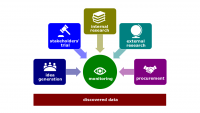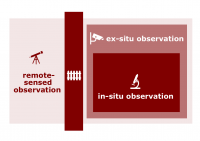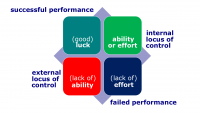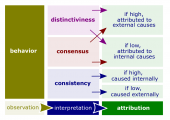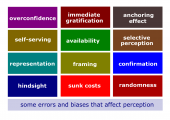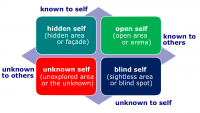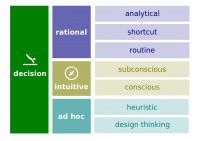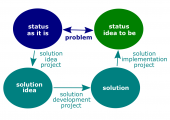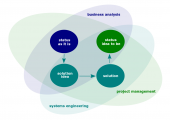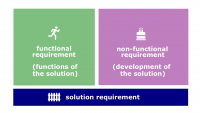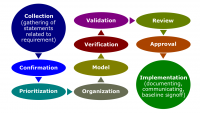OB intent concepts
Revision as of 01:17, 2 December 2018 by Gary (talk | contribs) (Created page with "OB introductory concepts are those concepts that are related to the core of the organizational behavior science. The concepts below are taken from Organizational...")
OB introductory concepts are those concepts that are related to the core of the organizational behavior science. The concepts below are taken from Organizational Behavior by Robbins and Judge (17th edition); Septem Artes Administrativi served as the primary source of illustrations.
Perception
- Perception. A process by which individuals organize and interpret their sensory impressions in order to give meaning to their environment.
- Attribution theory. An attempt to determine whether an individual's behavior is internally or externally caused.
- Fundamental attribution error. The tendency to underestimate the influence of external factors and overestimate the influence of internal factors when making judgments about the behavior of others.
- Self-serving bias. The tendency for individuals to attribute their own successes to internal factors and put the blame for failures on external factors.
- Selective perception. The tendency to selectively interpret what one sees on the basis of one's interests, background, experience, and attitudes.
- Halo effect. The tendency to draw a general impression about an individual on the basis of a single characteristic.
- Contrast effect. Evaluation of a person's characteristics that is affected by comparisons with other people recently encountered who rank higher or lower on the same characteristics.
- Stereotyping. Judging someone on the basis of our perception of the group to which that person belongs.
- Stereotype threat. The degree to which we internally agree with the generally negative stereotyped perceptions of our groups.
- Self-fulfilling prophecy. A situation in which a person inaccurately perceives a second person, and the resulting expectations cause the second person to behave in ways consistent with the original perception.
Decision making
- Decision. A choice made from among two or more alternatives.
- Problem. A discrepancy between the current state of affairs and some desired state.
- Rationale. A reasoning characterized by making consistent, value-maximizing choices within specified constraints.
- Rational decision-making model. A decision-making model that describes how individuals should behave in order to maximize some outcome.
- Bounded rationality. A process of making decisions by constructing simplified models that extract the essential features from problems without capturing all their complexity.
- Intuitive decision making. An unconscious process created out of distilled experience.
- Anchoring bias. A tendency to fixate on initial information, from which one then falls to adequately adjust for subsequent information.
- Confirmation bias. The tendency to seek out information that reaffirms past choices and to discount information that contradicts past judgments.
- Availability bias. The tendency for people to base their judgments on information that is readily available to them.
- Escalation of commitment. An increased commitment to a previous decision in spite of negative information.
- Randomness error. The tendency of individuals to believe that they can predict the outcomes of random events.
- Risk aversion. The tendency to prefer a sure gain of a moderate amount over a riskier outcome, even if the riskier outcome might have a higher expected payoff.
- Hindsight bias. The tendency to believe falsely, after an outcome of an event is actually known, that one would have accurately predicted that outcome.
- Utilitarianism. A system in which decisions are made to provide the greatest good for the greatest number.
- Whistle-blower. An individual who reports unethical practices by their employer to outsiders.
- Behavioral ethics. Analyzing how people actually behave when confronted with ethical dilemmas.
- Creativity. The ability to produce novel and useful ideas.
- Three-stage model of creativity. The proposition that creativity involves three stages: causes (creative potential and creative environment), creative behavior, and creative outcomes (innovation).
- Problem formulation. The stage of creative behavior that involves identifying a problem or opportunity requiring a solution that is as yet unknown.
- Information gathering. The stage of creative behavior when possible solutions to a problem incubate in an individual's mind.
- Idea generation. The process of creative behavior that involves developing possible solutions to a problem from relevant information and knowledge.
- Idea evaluation. The process of creative behavior involving the evaluation of potential solutions to problems to identify the best one.
